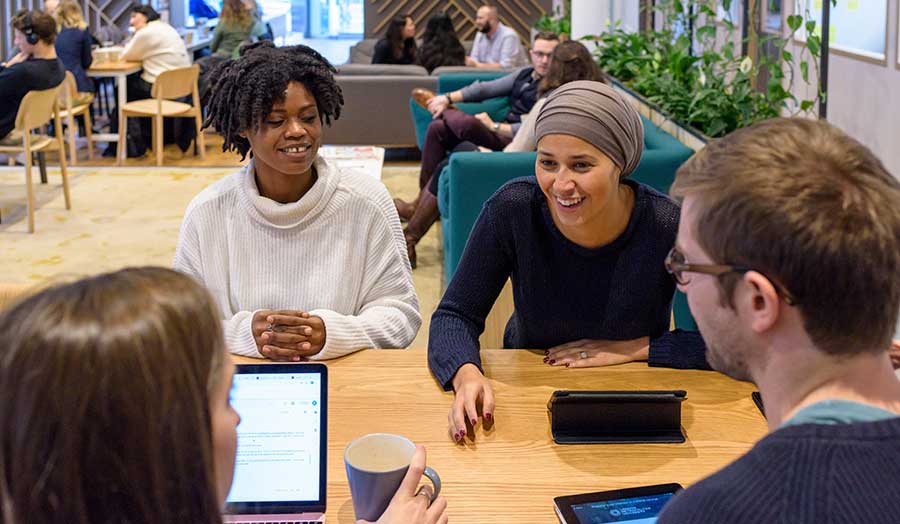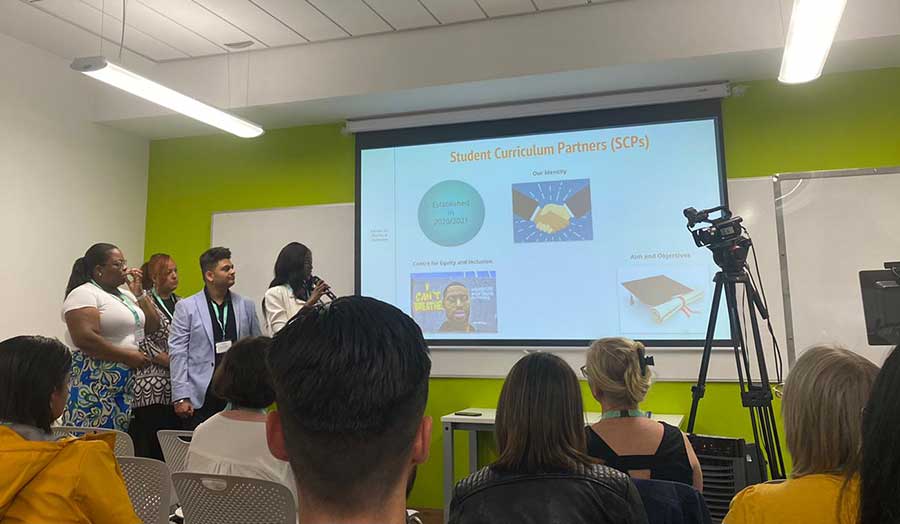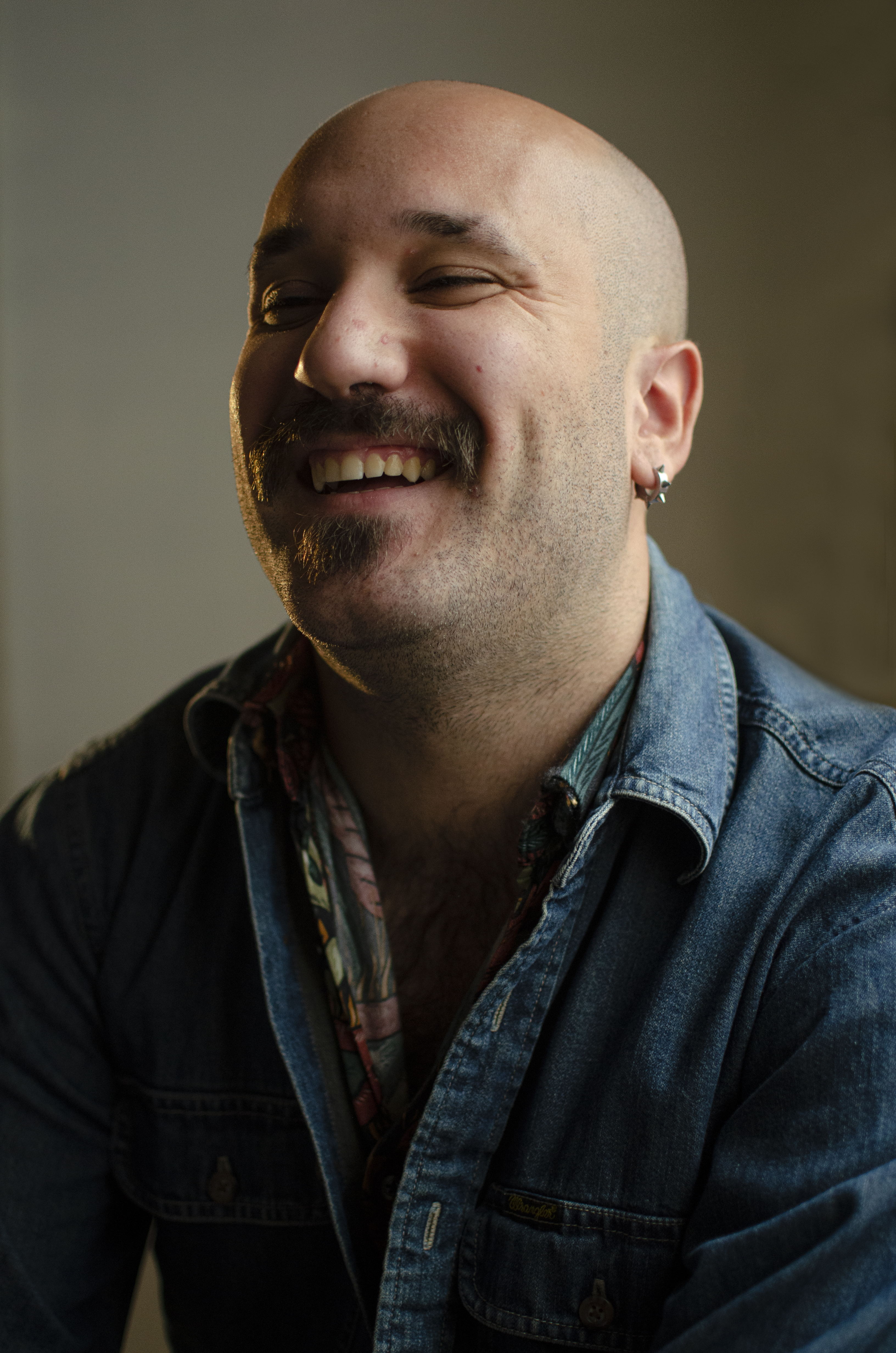The University is committed to working in partnership with students. In 2020 the University worked with students to co-create its Students as Partners Framework (SaP). The SaP provides case studies and examples of how staff can work with students in partnership and how this can be embedded into life at London Met.
Going one step further than the work of the SaP, in 2021 the University worked in partnership with the Students’ Union and other stakeholders to develop London Met’s first ever Student Partnership Agreement (SPA). This project recognises a cultural step change as we move closer to best practice approaches in authentic partnership working.
The SPA is a key document that will help all stakeholders understand the approach we wish to take, ensuring everyone enters into the process of partnership with the commitment to act in good faith. The SPA also allows us to have a frame of reference to evaluate what good partnership looks like so that we have a shared language and understanding. The SPA covers the values and principles that we wish to embed in all aspects to improve the student experience and further embedding co-creation at London Met and ensuring that the Students’ Union, students and institution can be critical friends.

Who are our Curriculum Partners and what do they do?
London Met’s Student Curriculum Partners (SCP) work in partnership with academic teams by reviewing course materials to help academics reflect on their practice. Facilitated by the Centre for Equity and Inclusion, and recruited from our postgraduate and undergraduate cohorts, SCPs advise on how courses can be made more engaging and accessible to all students, ensuring they embed London Met’s principles of inclusivity to support our students' success and fair outcomes.
The SCP scheme aims to improve the experience, skills and attainment of all our students by contributing to the creation of a curriculum that ensures all students, regardless of background, are able to participate fully and see themselves reflected in their learning.
Why participate as a student?
The scheme is a fantastic opportunity for our students to develop their inclusive leadership skills; becoming changemakers during their time at London Met and onwards into the professional world. Within this flexible, part-time role, students will develop their skills in confidence, critical thinking and presentation, whilst building a lasting relationship of trust between students and staff. SCPs will have the opportunity to have their voices heard as they work in collaboration with staff to help shape and design a curriculum that is reflective of all our students.
Why participate as staff?
Whilst participating in this scheme, academics will have the opportunity to reflect on how to embed the principles of inclusivity into their curriculum. The scheme aims to improve the relationship and trust between students and staff whilst staff increase their understanding of “others’ experiences”. Academics will have the opportunity to rethink, reframe and restructure, and help to decolonise academic practices by developing curriculum materials.
Why now? Why London Met?
At London Met, addressing racial and social justice sits at the heart of our mission. We are committed to delivering real and positive change across the University. In line with our Race Equity Strategic Plan (2020/21–2024/25), the SCP scheme strives for equity in education. Throughout their work, our curriculum partners actively promote the Education for Social Justice Framework whilst participating in the facilitation, co-designing and enhancement of our curricula.
What is next?
As we continue to challenge institutional hierarchy, academic practices and strive to create a more equitable university for our students and staff we aim to have reduced the awarding gap at London Met by 10% by 2025 as well as eliminating disparities in non-continuation rates. We will continue to empower our students and staff as we develop our inclusive curriculums.
If you would like to know more about the Student Curriculum Partner Scheme or you would like to work in partnership with our students please email scp@londonmet.ac.uk

“Students from ‘non-traditional’ backgrounds are disadvantaged by institutional cultures that place them as other… a need for initiatives to focus on ‘cultural’ aspects of the academy such as methods and styles of teaching and learning.”
(Read et. al, 2003:275)
''I became a Student Curriculum Partner (SCP) in October 2022 during my MSc in Food Science. My task was to review course, module and project documents (such as catalogues, handbooks and other learning materials on Weblearn) in accordance to the Education and Social Justice Framework (ESJF) which looks at 6 dimensions (inclusive leadership; inclusive assessment; accessibility; critical theory and pedagogy; identity, personalisation and reflection and relationship; and psychosocial environment) and decolonising the curriculum. The main aim of the ESJF is to reduce the Black, Asian and Minority Ethnic (BAME) students’ awarding gap.
This role was really enjoyable as I met many staff and students, attended events, saw and felt the impact of what students can bring to the table and learnt about different courses outside my area of study. The job fit very well with my schedule as a student as it was mostly remote/online. Being of BAME origin myself, it was great to see London Met taking steps to be more inclusive and also me making a difference through my lived experiences.
I was opportune to take part in many activities as follows:
· Reviewing curriculums (postgraduate and undergraduate student handbooks; Conference management and organic Ring systems modules; the new Nursing course materials; the AAD 60 Sec Film Project; Weblearn PASS Scheme; and revision of the ESJF Model).
· Training on EDI (attended a summit; Global Inclusive leader course and Disrupt the Discourse - DtD).
· Presented at the student panel (teaching and learning event where I made staff aware of the SCP role and how we can work together. Also gave feedback from students based on the NSS).
Being an SCP was amazing because I not only made an impact by reviewing curriculums but was enriched by attended courses free of charge and learning more about Equality/Equity, Diversity and Inclusion (EDI). Highlight for me was obtaining 2 certificates from Diversity abroad; firstly, from attending the week-long Global Student Leadership Summit and secondly participating in the 3-month Global Inclusive Leadership Certificate Program. Aspects that stood out to me include empathy, cultural humility, perspective taking/shifting, intersectionality and intercultural competence. I also participated in London Met’s DtD run by Kevin Brazant where I learnt more about critical race theory and critical pedagogy.
The role was easy to undertake because we were properly trained. We also had a very approachable and understanding manager who made the job enjoyable. But this does not mean it was without challenges. At first, giving feedback to the staff on their module I reviewed was a brave space for me as I felt there would be pushback. But instead, it was very engaging and through our discussions, I saw academics that loved what they did and wanted the best for their students. Through DtD workshops and conversations with my manager, I was able to look forward to the feedback sessions with Staff.
The diversity of students at London met (from over 140 countries) shows how serious our university is about inclusion. London met not only has strategies but actions also for EDI. The SCP is a testament to that. The SCP role also shows how seriously our university takes the student-staff partnership. This role is an amazing one and I definitely encourage other students to take part.
This role helped me develop the confidence to communicate with staff on achieving a common goal and also to see module contents through a different lens of the 6 dimensions. I also made good friends, acquaintances and enriched my CV.''
Nwando Onuigbo-Chatta

"This role was really enjoyable as I met many staff and students, attended events, saw and felt the impact of what students can bring to the table and learnt about different courses outside my area of study."
''I remember myself last year, around October, I was working in a very repetitive job in which I would have had no time or place to suggest changes that would help to create a better environment for the whole team.
Then I realised that I was made for redirecting wheels of as I call it “the industry of the world”. I wanted to do something meaningful and purposeful within social issues believing in the possibility of a better world.
As soon as I found the role of Student Curriculum Partner I thought ‘Maybe this is an opportunity for me to say what I want to fight for’, ‘Maybe It’s my time to get started on contributing by putting action to what I was conscious of… I can have the empowerment, as any other human being to generate the change for everybody to have the same!’
This equity thrive wouldn’t have started to emerge until I started having carte blanch to work with academics and module content, based on our Student Curriculum Partner Scheme, which is compromised to question issues of Diversity and Inclusion such as Inclusive Assessments, Identity, Personalization and Reflection, Decolonization of the Curriculum, Critical Theory and Pedagogy or Inclusive Leadership amongst the most relevant ones.
The role has helped me to grow up my confidence as a Migrant Student and Worker, acquiring leadership, talking and performance skills when working for a very important institution as it is London MET thanks to the feeling of belonging within peer relationships with academic staff and cohorts. The level of mutual respect that is created in our seminars is extraordinary and necessary for any other partnership.''
Pablo Gomez Rodriguez

"I wanted to do something meaningful and purposeful within social issues believing in the possibility of a better world."
